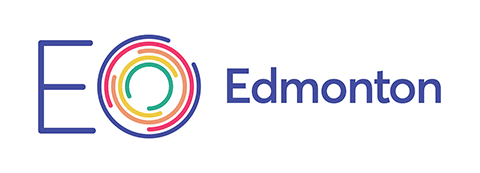12 Soft Skills to Help You Succeed in the Workplace
You’ve probably heard of hard skills and soft skills when discussing quality candidates for a role, but what are soft skills? Soft skills are important personal traits that ensure you are able to interact with others in a competent and amicable manner. Soft skills ensure that not only can a person do their job well, but they are able to work within a team. Read our blog to learn more about what soft skills are, why they are important, how soft skills work for leadership, and a few important soft skills to cultivate for success in the workplace.
What are Soft Skills?
Soft skills are the skills a person has that allow them to work with others effectively. Have you ever left a professional interaction feeling unsettled or unsure of where you stand with a coworker? That person may need to work on their soft skills. Soft skills aren’t something you can learn through a course or in a book, they are learned through working and communicating with other people. Having good soft skills isn’t just about being well liked or a people person, they are more about being able to thrive in a team environment – which the vast majority of workplaces are. If you’re looking to become a leader at a company, or you’re hoping to grow your leadership skills, it’s important to understand the most important skills for leadership.
Why are Soft Skills Important for Leadership?
Soft skills are crucial for leadership because they are the foundation for effective communication, collaboration, and relationship-building within a team or organization. Here are several reasons why soft skills are important for leadership:
- Effective Communication: Leaders need to convey their ideas clearly and listen actively to their team members. Soft skills such as empathy, active listening, and persuasion help leaders communicate effectively, build trust, and inspire their teams.
- Conflict Resolution: In any group, conflicts are inevitable. Leaders with strong soft skills can manage conflicts constructively, mediate disagreements, and foster a positive work environment where differences are respected and resolved peacefully.
- Team Building: Soft skills like empathy, teamwork, and relationship-building are essential for creating a cohesive team. Leaders who understand their team members’ strengths, weaknesses, and motivations can effectively delegate tasks, provide support, and foster a collaborative atmosphere.
- Adaptability: In today’s fast-paced and dynamic work environments, leaders must be adaptable and open to change. Soft skills such as flexibility, resilience, and problem-solving enable leaders to navigate uncertainty, make quick decisions, and lead their teams through transitions effectively.
- Influence and Motivation: Leadership is not just about giving orders; it’s about inspiring and motivating others to achieve common goals. Leaders with strong soft skills can influence their team members positively, build morale, and empower them to perform at their best.
- Empathy and Emotional Intelligence: Understanding and empathizing with others’ emotions are key components of effective leadership. Leaders with high emotional intelligence can connect with their team members on a deeper level, provide support during challenging times, and create a culture of trust and psychological safety.
- Strategic Thinking: Soft skills such as critical thinking, creativity, and problem-solving are essential for strategic decision-making. Leaders who can analyze complex situations, think innovatively, and anticipate future challenges are better equipped to steer their organizations toward success.

Soft skills ensure that you can work with team members, communicate effectively, and ultimately have a positive effect on your career. Having good soft skills ensures that you can resolve conflicts, find solutions to problems, lead projects, and retain both employees and customers. Having soft skills is important in the workplace as they allow you to work with others and retain positive relationships.
Not having soft skills can lead to being considered difficult to work with, angering customers, and hindering your ability to lead your team or move further up in an organization. Although having hard skills (such as industry knowledge and the direct skills needed to accomplish your job) are important for leadership, soft skills are often considered the main reason people are promoted. It is often said that hard skills are what get someone hired, but soft skills are what keep them employed and make for great leaders.
The Most Important Soft Skills for Leadership and the Workplace
Although it’s wise to hone all soft skills, there are some soft skills that will ensure you’re viewed positively in the workplace. As a leader, these soft skills can particularly help you work with your team. As professional recruiters, we know what soft skills employers are looking for in a successful candidate! Here are some of the most important soft skills to sharpen to help you thrive in the workplace.
1. Communication Skills
Communication skills are one of the most important soft skills to master. You want to be able to communicate clearly and precisely to ensure that your team knows what you are trying to say, while still ensuring that they feel comfortable with you and like you care about them. This often means mimicking the communication style of the person you’re speaking with to ensure that you’re communicating in a way that they will understand. Some of the best communicators are chameleons of sorts, changing the way they communicate to reflect the person they are speaking with – and in turn having the most positive impact.
2. Teachability
Teachability is another important soft skill in the workplace. No one wants to work with an old dog who can’t learn any new tricks. Being able to learn new methods and practices and retain what is taught is incredibly important for positive experiences in the workplace. If your coworkers find themselves having to explain the same thing over and over again, or they are constantly met with the phrase “I don’t know how to do that, so I can’t,” they are going to become frustrated. A willingness and ability to learn will set you up for success in the workplace.
3. Empathy
Having empathy in the workplace is a great way to ensure your coworkers feel comfortable around you. We’re not robots, so sometimes that means we’ll have off days or not come to work with the best attitude. Approaching your team with empathy and understanding ensures that not only will they know that you care about them, but they will also feel comfortable being open and honest with any struggles they are having. This will ensure a more positive work environment where team members help and support each other.
4. Critical Thinking
Sometimes, things go wrong at work. Whether there was a mistake or oversight or a random failure with no direct cause, issues still need to be solved. Having critical thinking skills ensures that you can problem solve in a logical manner. Critical thinking also allows employees to look at internal processes and tasks and ensure that time and money are being used efficiently.
5. Self-Motivation
Employees who are self-motivated are incredibly valuable to have, especially in a world with hybrid workforces. Employees who are motivated to work and don’t need someone telling them what to accomplish all the time receive more trust and responsibility, often leading to better promotions within the organization.
6. Active Listening
Active listening is an important soft skill to have in both a personal and professional setting. Active listening means not only are you paying attention to what someone is saying, but you are also seeking to fully understand what they are communicating and will be able to respond in kind. Active listening is important when speaking with coworkers, receiving instructions from supervisors, as well as learning what your clients are hoping to achieve from your services. Employees with strong active listening skills are much more likely to find success in their careers.
7. Creativity
Staff members who can approach everything with creativity are a wonderful asset for the team. Being able to look at problems, tasks, and a role in general with creativity ensures that the job will be done well and in an interesting manner. The status quo approach can become tired and ineffective, so approaching work with creativity is a great way to find success in the workplace!
8. Friendliness
There is a common misconception that being friendly at work could be considered unprofessional or is not suited to a work environment. This isn’t the case at all! While it’s still important to be professional at work, being friendly helps build connections with coworkers and clients alike. It’s important to put your best foot forward and treat coworkers and clients with respect and kindness, and having an open and friendly approach is a great way to start!
9. Time Management
Time management is an incredibly important soft skill to have in the workplace. Team members who can’t meet deadlines, always seem to be late to start in the mornings or for meetings, and never seem to have enough time in the day can be incredibly difficult to work with. That’s why it’s important to work on your time management skills and ensure that you can show up when you say you will and complete the tasks within the timeline you promise.
10. Public Speaking
Many jobs involve the need to speak well in front of others. Not everyone needs to be able to confidently deliver a speech in front of 1000 people, but it’s a wise idea to practice speaking in front of others. Most of us will need to make presentations, provide feedback, and simply participate in meetings that have several people – often people we don’t know well – so it’s important to have decent public speaking skills.
11. Conflict Resolution
It’s not always fun to talk about, but conflict happens. When conflict occurs in the workplace it’s important to see both sides of the disagreement and help find a resolution that both parties can be okay with. Being able to help with conflict resolution shows good leadership skills and a greater likelihood for promotion.
12. Flexibility
Finally, a good soft skill to hone in the workplace is flexibility. The world is constantly changing, as is our workplace, so being too focused on routine and expectations can cause a lot of issues. Have you ever had a coworker who would do nothing outside of their role requirements? It was probably pretty hard to work with them. A willingness to adapt to changing situations shows your team that you are willing to step outside your comfort zone for the good of your workplace – and your career! Flexibility isn’t necessarily easy, but those who are willing to practice a more flexible attitude towards their jobs are more likely to succeed.
Sharpening your soft skills is a great way to move up the job ladder and find success in your career. While it’s important to maintain your hard skills and ensure you’re able to do your work to the best of your ability, honing your soft skills will help you thrive in the workplace, plus, having good soft skills will also ensure you enjoy your work more too!
Find Leaders with Great Soft Skills with Recruitment Partners
Here at Recruitment Partners Inc., we take every candidate’s experience and hard skills into consideration with their soft skills. We know the importance of having well rounded employees who are both capable of performing at work while also maintaining relationships. If you are looking for advice on honing your soft skills and getting your dream job, please contact us!











